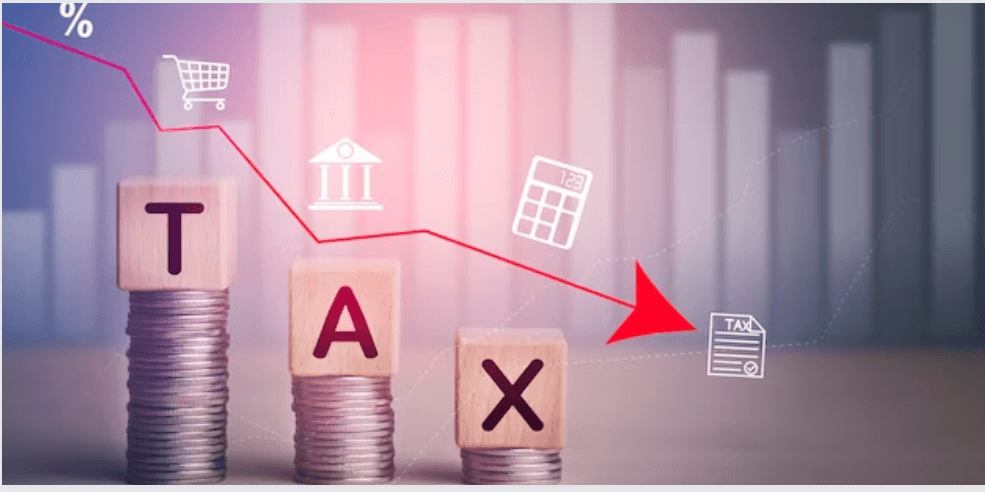Welcome to a comprehensive guide on mastering the art of financial optimization – a journey that begins with understanding how to reduce taxable income. In today’s dynamic economic landscape, strategically managing your income to minimize tax liabilities is a crucial step towards building a more secure and prosperous future. Whether you’re an individual seeking to maximize personal savings or a business aiming for strategic growth, the key lies in implementing effective strategies.From exploring tax-efficient investment options to leveraging deductions and credits, we’ll unravel the intricacies of tax planning.
Join us as we navigate the world of financial empowerment, providing you with the tools and knowledge to make informed decisions and optimize your financial position. Let’s embark on this journey together, unlocking the doors to reduced taxable income and a brighter financial future.
Understand on how to reduce taxable income:
Before we dive into the strategies, let’s clarify what taxable income entails. Taxable income is the portion of your income that is subject to taxation by the government. It includes wages, salaries, bonuses, and other sources of income. Reducing taxable income involves employing legal and strategic methods to minimize the amount subject to taxation.
Top Strategies on How to Reduce Taxable Income:
1.Maximize Contributions to Tax-Advantaged Accounts:
One of the most effective ways on how to reduce taxable income is by maximizing contributions to tax-advantaged accounts such as Individual Retirement Accounts (IRAs) and 401(k)s. These contributions are often tax-deductible, providing an immediate reduction in taxable income.
2.Leverage Deductions and Credits:
Explore available deductions and tax credits. Deductions, such as those for student loan interest, mortgage interest, and medical expenses, can significantly lower taxable income. Tax credits, like the Child Tax Credit and Earned Income Tax Credit (EITC), directly reduce the amount of taxes owed.
3.Optimize Health Savings Accounts (HSAs):
HSAs allow individuals to contribute pre-tax dollars to cover qualified medical expenses. By maximizing contributions to an HSA, you not only reduce taxable income but also create a dedicated fund for healthcare costs.
4.Strategic Investment Planning:
Implementing a tax-efficient investment strategy is crucial. Consider holding investments for the long term to qualify for lower capital gains tax rates. Explore tax-efficient investment vehicles such as index funds and ETFs to minimize taxable gains.
5.Small Business Strategies:
For business owners, optimizing deductions for business expenses, taking advantage of the Section 179 deduction for equipment purchases, and exploring Qualified Business Income Deduction (QBI) are essential strategies on how to reduce taxable income.
6.Charitable Contributions:
Making strategic charitable contributions can lead to a double benefit. Not only are you supporting causes you believe in, but you can also deduct the donated amount from your taxable income. Be sure to keep detailed records for tax documentation.
7.Educational Savings and Credits:
If you have educational expenses, explore options like 529 plans for college savings and tax credits like the American Opportunity Credit or the Lifetime Learning Credit. These can help on how to reduce taxable income while investing in education.
In the ever-evolving landscape of finance, technology is playing an increasingly pivotal role in reshaping traditional approaches to taxation. As individuals and businesses navigate the complexities of taxable income, innovative technologies emerge as powerful tools to optimize financial strategies. This comprehensive exploration delves into the cutting-edge technologies transforming tax planning and on how to reduce taxable income.
1.AI and Machine Learning in Tax Planning:
The advent of Artificial Intelligence (AI) and Machine Learning (ML) has ushered in a new era of precision in tax planning. These technologies can analyze vast amounts of financial data, identify patterns, and predict potential tax-saving opportunities. AI-powered tax software can dynamically adapt to changes in tax laws, ensuring real-time accuracy and compliance.
2.Blockchain for Transparent Transactions:
Blockchain technology, famed for its role in cryptocurrencies, is finding applications in tax planning by enhancing transparency and traceability. Utilizing blockchain for financial transactions ensures an immutable and transparent ledger, reducing the risk of errors and fraud. This increased transparency can contribute to more accurate reporting and potentially reduce taxable income.
3.Robotic Process Automation (RPA) in Compliance Management:
Robotic Process Automation (RPA) streamlines repetitive tasks involved in compliance management. From data entry to reconciliation, RPAs can handle these tasks with speed and accuracy, reducing the risk of errors and ensuring that financial data is accurately reported. This enhanced efficiency can contribute to precise tax calculations and, consequently, lower taxable income.
4.Data Analytics for Expense Optimization:
Harnessing the power of data analytics can revolutionize how businesses optimize expenses to reduce taxable income. Analyzing historical financial data can uncover trends and patterns, helping businesses identify areas where expenses can be optimized for tax efficiency. This data-driven approach enhances strategic decision-making for expense management.
5.Cloud-Based Collaboration Tools for Remote Tax Planning:
Cloud-based collaboration tools have become indispensable for remote work, and they are equally beneficial in the realm of tax planning. These tools facilitate seamless collaboration between taxpayers, accountants, and financial advisors, enabling real-time sharing of financial information. Cloud-based platforms enhance accessibility and communication, streamlining the tax planning process and potentially reducing taxable income through efficient decision-making.
6.Cryptocurrencies and Tax Efficiency:
The rise of cryptocurrencies introduces new considerations in tax planning. While the regulatory landscape evolves, cryptocurrencies can offer tax efficiency through strategic investment and innovative financial instruments. Properly managing cryptocurrency transactions can contribute to minimizing taxable events and optimizing overall tax liability.
7.Mobile Apps for Personal Tax Management:
Mobile applications have democratized personal finance management, providing individuals with user-friendly tools for tracking income, expenses, and potential tax deductions. These apps often integrate with tax software, offering real-time insights into financial data and empowering users to make informed decisions that can reduce taxable income.
8.Cybersecurity Measures for Financial Data Protection:
As technology advances, ensuring the security of financial data becomes paramount. Implementing robust cybersecurity measures protects sensitive financial information from unauthorized access and potential cyber threats. This safeguarding of data integrity is crucial for accurate financial reporting and compliance, ultimately influencing taxable income.
9.Personalized Financial Planning Algorithms:
Advanced algorithms powered by AI can analyze individual financial situations and recommend personalized tax strategies. These algorithms consider various factors, including income sources, deductions, and investment portfolios, to tailor recommendations that align with the goal of reducing taxable income.
10.Smart Contracts for Tax Compliance:
Smart contracts, enabled by blockchain technology, automate and execute contractual agreements with precision. In tax planning, smart contracts can be programmed to ensure compliance with specific tax rules and regulations. This automation reduces the risk of human error in tax-related transactions and contributes to accurate reporting of taxable income.
Reducing taxable income is not just a financial strategy; it’s a pathway to financial empowerment. By implementing these strategies and staying informed about changes in tax laws, you can take control of your financial future. Remember, tax planning is a dynamic process that evolves with your life and financial situation. Explore, strategize, and embark on a journey toward reduced taxable income and lasting financial well-being.
Thanks for reading from Adhunu
Check out our other blogs
Decoding Financial Victory: The Success of a Financial Plan Will Be Determined By…
Wealth Mastery: The Power of Financial Investment Planning Unveiled
Strategies for Success: Creating Your Ideal Investment Plan
FAQ
A1: While some means-tested programs may consider adjusted gross income, many tax-reduction strategies focus on taxable income, which may not impact eligibility for government programs.
A2: Freelancers and gig workers can explore business expense deductions, home office deductions, and retirement plan contributions to reduce taxable income.
A3: Tax planning for retirement involves strategically managing withdrawals from different types of retirement accounts to minimize the tax impact on income.
A4: Yes, there are contribution limits for accounts like IRAs and 401(k)s. It’s essential to stay informed about these limits and adjust your contributions accordingly.




